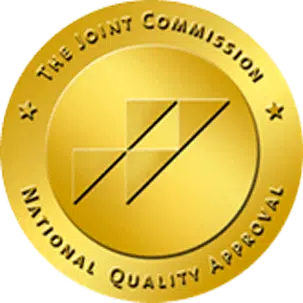
For those with co-occurring disorders, we provide dual care, addressing both mental health and substance challenges for complete recovery.
Dual diagnosis refers to the presence of both a substance use disorder and a mental health condition such as depression, anxiety, bipolar disorder, or post-traumatic stress disorder (PTSD).
These conditions can interact in complex ways, worsening each other’s symptoms and making recovery more difficult, which is where co-occurring treatments come in.

Some common mental health conditions that co-occur with addiction include:
Attempting to treat only the addiction or only the mental health condition is often ineffective in the long run. At New Choices Treatment Center, we understand that true healing requires addressing both issues at the same time through an integrated approach.
Leaving a mental health condition untreated can significantly increase the risk of relapse, as people may continue to turn to substances as a way to cope with their symptoms. Conversely, failing to address the underlying addiction can impede progress in managing mental health issues.
Diagnosing and treating co-occurring disorders can be challenging, as the symptoms of both conditions often overlap and influence each other. This is why it’s crucial to seek treatment from a facility that specializes in dual diagnosis care.

Located in San Antonio, Texas, New Choices Treatment Center is a leading provider of substance abuse treatment services.
Founded in 2018, we offer a range of levels of care, including:
At the heart of NCTC is our mission to empower people with the courage and skills needed to achieve long-term sobriety. We are guided by core values of compassion, honesty, and a family-oriented approach. We believe that meaningful connections are essential for lasting recovery.
While many treatment centers follow a traditional 12-Step model, NCTC stands out with our clinically-based approach to co-occurring treatments tailored to each person’s unique needs.
We prioritize:

Our team is made up of highly qualified professionals, including:
These specialists are dedicated to providing the highest quality of care. We are accredited by the Joint Commission (JCAHO), a testament to our commitment to excellence.
With intimate living accommodations and a favorable staff-to-client ratio, we ensure that each person gets the attention and support they deserve on their journey to recovery.
At NCTC, we understand that effective co-occurring treatments require a comprehensive, integrated approach that addresses both the addiction and the mental health condition at the same time.
Our team of experts works closely with each client to develop a customized treatment plan that combines evidence-based therapies with holistic practices.

Our dual diagnosis program incorporates a range of therapeutic modalities to address the unique needs of each person.
These may include:

Cognitive-behavioral therapy (CBT): This evidence-based approach helps clients identify and modify negative thought patterns and behaviors that contribute to their addiction and mental health challenges.
Dialectical behavior therapy (DBT): DBT focuses on developing mindfulness, emotion regulation, and interpersonal effectiveness skills. This can be particularly beneficial for people with conditions like borderline personality disorder.
Trauma-focused therapies: For those struggling with PTSD or other trauma-related issues, we offer therapies like eye movement desensitization and reprocessing (EMDR) to help process and heal from traumatic experiences.
Family therapy and psychoeducational groups: Involving loved ones in the treatment process and providing education about addiction and mental health can foster a supportive environment for recovery.
Experiential therapies: Our program incorporates a variety of experiential therapies, such as art therapy, music therapy, and recreational therapy. These methods promote self-expression, mindfulness, and well-being.
Medication management and MAT: In some cases, medication-assisted treatment (MAT) may be recommended to help manage withdrawal symptoms or mental health conditions. This always occurs under the careful supervision of our medical team.

At NCTC, we understand that recovery is an ongoing journey that extends beyond the treatment program. That’s why we offer comprehensive aftercare services and an alumni program to support our clients in maintaining their sobriety and mental wellness.
Our case managers work closely with clients to:
Our alumni program provides a supportive community for those who have completed treatment at NCTC. Weekly meetings and monthly events offer opportunities for continued connection, sharing of experiences, and celebration of milestones in recovery.
Throughout the recovery process, we emphasize relapse prevention strategies. We aim to equip our clients with the tools and resources they need to navigate challenges and maintain their hard-earned progress.
If you or a loved one is struggling with addiction and a co-occurring mental health condition, know that you are not alone. At New Choices Treatment Center, we are here to provide the compassionate, comprehensive care you deserve.
Reach out to us today to learn more about our co-occurring treatments or to schedule a confidential assessment. Together, we can help you find the courage to change and embark on a journey toward a healthier, more fulfilling life.

Below are some commonly asked questions about co-occurring treatments for dual diagnosis:
At New Choices Treatment Center, we specialize in treating a wide range of co-occurring mental health disorders alongside substance use disorders. This includes:
Our integrated approach ensures both issues are addressed at the same time.
Traditional addiction treatment often fails to adequately address co-occurring mental health needs. Our integrated model recognizes that these issues are deeply intertwined.
We provide comprehensive care utilizing evidence-based therapies to treat the whole person, not just the addiction or mental illness separately.
Our therapeutic approach combines services such as:
These modalities target the root causes while building essential coping skills.
In some cases, medication may be recommended as part of an integrated treatment plan. Our medical team carefully evaluates each client’s needs and may incorporate medication-assisted treatment (MAT) to help manage withdrawal symptoms or mental health conditions when appropriate.
We understand recovery is an ongoing journey. Our comprehensive aftercare planning includes:
Our active alumni program also provides a supportive network.